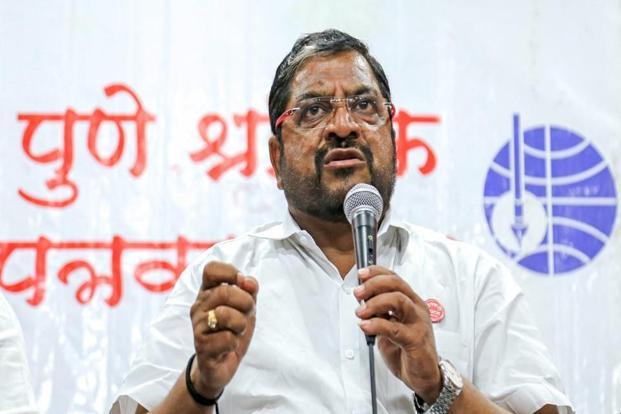New Delhi: Agriculture sustains more than half of India’s working population but finds too little representation in its electoral politics. But Friday marked a small victory for farmers reeling under a protracted period of distress when Member of Parliament (MP) from Maharashtra’s Hatkanangle constituency Raju Shetti introduced two private member bills in the Lok Sabha—seeking a one-time debt write-off for farmers, and making government announced crop support prices a legal entitlement.
“There are 800 pending private members bills in the Parliament but this was extraordinary,” Shetti said. He explained that not only were the bills discussed and approved in a Kisan Sansad in Delhi in November last year, nearly 20 million farmers submitted their signatures in support of these bills to India’s President.
“Twenty one (opposition) political parties have extended their support so I am hopeful the bills will be discussed in the next session of the Parliament,” Shetti said.
51-year-old Shetti is a popular farmer leader from Kolhapur in western Maharashtra’s sugarcane belt. But odd as it may sound, he is the only farmer leader in India who is also an elected MP. Shetti began his career in 1985 working with the feisty farmer leader from Maharashtra Sharad Joshi, but the two fell apart in 2004 when Joshi decided to unconditionally support the Bharatiya Janata Party in the 2004 general elections.
“I told him we should fight elections, at least in one seat… but I was removed from the party,” Shetti says.
After forming a political outfit Swabhimani Paksha, Shetti won his first Lok Sabha seat from Kolhapur’s Hatkanangle in 2009, and again in 2014. Shetti’s associates say that his election campaigns with slogans like ‘one note one vote’ are unique as they are sponsored by voters who contribute as little as Rs 10 per person. “I have no money… so I tell people they have to pay for sending me to the Lok Sabha,” Shetti said.
The backbone of Shetti’s support base follows his struggle to get sugarcane growers from western Maharashtra a fair price for their produce.
“Close to 300 MP’s from Lok Sabha claim they are either farmers or are connected to agriculture, but Shetti stands out as the only MP whose route to power was charted by his grassroots work on mobilising farmers,” tells Yogendra Yadav, president of political party Swaraj Abhiyan and an associate of Shetti in the All India Kisan Sangharsh Coordination Committee (AIKSCC), a coalition of around 200 farmer unions in India.
Yadav adds that despite the current crisis in agriculture, when the influence of most farmer leaders are at best limited to a single district within a state, Shetti’s mass base has spread due to his dedication to the farmers’ cause. “Petty egos are common in farm movements but Shetti has none… he has risen despite having little money or dynastic connections… as a leader who can speak to his constituency,” Yadav said.
Shetti’s might was visible in July this year when he gave a call to stop supplies of fresh milk to major cities in Maharashtra as farm gate prices fell to a low of Rs 17 for a litre of cow milk. The strike started in the wee hours of 16 July and within four days the Maharashtra government decided to raise procurement prices to Rs 25 a litre.
Since June last year, as farmer protests in India gathered steam on plunging crop prices following consecutive years of record harvest, Shetti has been visiting other states as part of the AIKSCC coalition.
What changes did he see within farmer movements since the time of leaders like Sharad Joshi and Mahendra Singh Tikait? “Then farmers had both time and money… now they are poor, struggling to pay for education and health. My work is to make them understand that they will have to come together as a political block… convert themselves as a political vote bank… that is the only language political parties and politicians understand,” Shetti said.
The rise of Shetti however follows a set pattern. Historically, farmer leaders in India who were able to make a mark and force policy changes, emerged from relatively prosperous agricultural regions. For Tikait it was the wheat and sugarcane belt of Uttar Pradesh, for Shetti it is the cane and dairy belt of Maharashtra—where the constituents pay with time and money for supporting a movement, to protect their gains from farming.
India is yet to see a farmer leader emerge from severely distressed regions like Bundelkhand or Marathwada where the majority of farm households struggle just to stay afloat.












